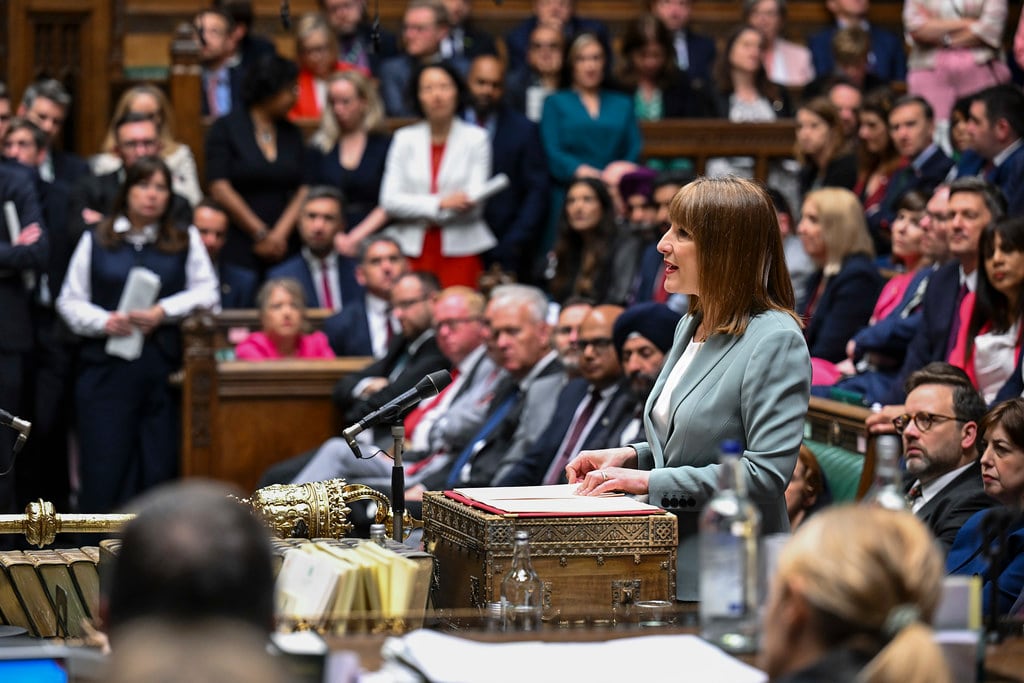Announcing her autumn budget earlier today (26 November), the Chancellor said the move will be funded through higher rates on larger properties. However, a subsequent policy document setting out the 2026-27 multipliers, shows that the new ’high-value multiplier’, which will apply to businesses with a rateable value of £500,000 or more, is to be set at 50.8p, lower than the current national standard multiplier of 55.5p for properties with a rateable value above £51,000.
A transitional relief package worth more than £4.3bn will be made available over the next three years for ‘a property of any size seeing a large increase in their bill’.
Responding to the budget, UKHospitality said the Government had not met its promise of delivering business rates reform in full, with only a quarter of maximum discount offered.
“Bricks and mortar hospitality businesses are being taxed out, and they have been penalised by the broken business rates system for far too long,” says Kate Nicholls, UKHospitality chair.
“Today the Chancellor recognised the importance of hospitality and provided a permanently lower multiplier for hospitality businesses – reforms secured by UKHospitality.
“However, the 5p discount is only a quarter of the maximum 20p discount the Government proposed last year.
“This is particularly frustrating given changes to business rates valuations will mean that many hospitality businesses’ tax bills will still significantly rise, alongside increases to the minimum wage adding extra cost. Business tax rates for hospitality must continue to fall for the rest of this parliament.
“The Government has heeded our calls for significant transitional relief for businesses, which will mitigate the worst impacts of the revaluation.
“Hospitality remains under significant cost pressures, with the highest tax burden in the economy. We will continue to campaign for additional support for the sector, including further business rates discounts.”
Modest benefit
Simon Green, co-head of Business Rates at commercial real estate advisor Newmark, says that while the Government’s move includes positive steps, the overall benefit for many occupiers is likely to be modest.
“Continued attention to broader structural reform will be important to ensure the system reflects current market dynamics and business realities,” he says.
“In reality, they offer only limited relief for many occupiers. The package includes positive steps, but it does not go far enough to address the structural issues that make business rates such a heavy burden for businesses.”
Other industry reaction to the budget was equally downbeat with Michael Kill, CEO of the Night Time Industries Association (NTIA), saying the pressure on both operators and consumers is now ’completely unsustainable’.
“This budget is a hammer blow to an already fragile night-time economy. Its impact will be felt across every high street and town centre in the UK.
”With inflation now higher than its been for some months and the cost of living becoming increasingly unsustainable, disposable income has all but disappeared, swallowed up by rising everyday costs.
”We are deeply concerned by the scale of direct and indirect tax increases set to hit our sector over the coming months. Many venues are already operating on the edge, and we will inevitably see businesses handing back their keys by January, when VAT, quarterly rent payments, and other financial obligations collide.”
Jobs cuts ‘inevitable’
Elsewhere in the budget, the Chancellor announced a freeze on income tax and national insurance thresholds for another three years from 2028, and reconfirmed plans to increase the national living wage and national minimum wage.
Under the plans, the national living wage will increase to £12.71, an increase of 4.1% from its current level of £12.21 per hour; while the national minimum wage rate for 18- to 20-year-olds will increase from £10 to £10.85, a higher-than-expected increase of 8.5%.
Graeme Smith, partner and managing director at global consulting firm AlixPartners, says the increase will mean businesses will have to work even harder to maintain their margins.
“Operators are now likely to face higher labour costs and continued input cost inflation from their supply chain. In response, operators will need to reassess pricing, menus, and workforce planning without pushing prices beyond what consumers can absorb in an already challenging economic period,” he says.
“All of this may lead to further restructurings as companies move to reduce costs and central overheads and exit uneconomic sites. In this environment, it is critical for businesses to identify the actions that matter most—and where to take them—to mitigate the additional financial burden and safeguard long-term competitiveness.”
Sacha Lord, chair of the NTIA, says the wage hike are a ‘big concern’ and would inevitably result in businesses cutting hours and jobs to help fund what he describes as ‘the extra burden’.
”All good operators want to pay staff as much as they can afford, but that’s the problem,” he says. “With overheads already at sky high levels a hike of 8.5% for 18/20 year olds at this particular time, will only result in cutting hours and job losses.”
”In terms of hospitality, considering we are the fifth biggest sector in the UK and the third largest employer, this budget fell well short of recognising the importance of the sector.
”We will now witness a raft of closures and job losses come January.”

